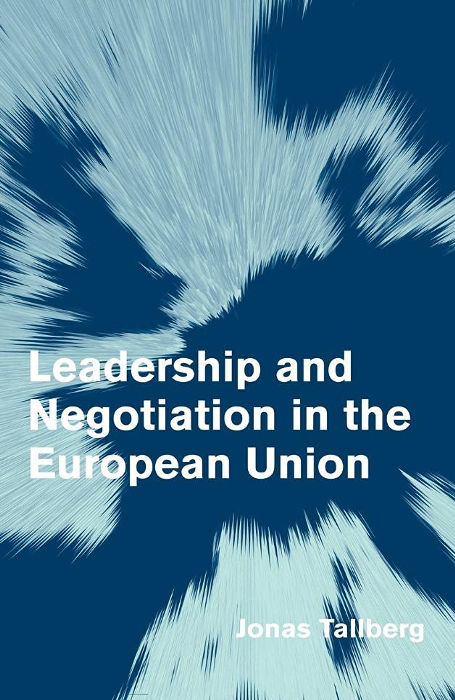Books
Jonas Tallberg
Leadership and Negotiation in the European Union
Themes in European Governance
Jonas Tallberg’s Leadership and Negotiation in the European Union offers a groundbreaking look at how the often-overlooked role of the chair—specifically the rotating EU Presidency—shapes the outcomes of high-stakes multilateral negotiations. Through rigorous theory and compelling case studies, Tallberg reveals that the Presidency is not just a neutral facilitator, but a strategic actor with unique opportunities to steer the EU’s agenda. This book is essential reading for anyone seeking to understand the subtle mechanisms of power and leadership at the heart of European and global governance.
Tallberg’s analysis challenges the conventional wisdom that the rotating Presidency of the Council of the EU is a mere administrative function. Instead, he demonstrates that the Presidency wields significant agenda-setting powers, manages negotiations, and brokers compromises between member states and EU institutions. The chair’s ability to set priorities, coordinate national policies, and represent the Council externally gives it a privileged position to influence legislative outcomes and focus attention on issues of national or regional interest. Tallberg’s rationalist theory of formal leadership is supported by detailed case studies, showing how Presidencies can exploit their access to information and procedural control to advance both EU-wide goals and, at times, their own national interests.
The book also explores the changing landscape of EU leadership following the Lisbon Treaty, which introduced permanent leadership roles but left the rotating Presidency with substantial responsibilities in managing the Council’s work, especially in legislative negotiations and inter-institutional dialogue. Tallberg extends his analysis beyond the EU, arguing that the power of the chair is a general phenomenon in international politics, shaping negotiations on trade, security, and the environment. He shows that while the Presidency is expected to act as an “honest broker,” it often balances this impartiality with subtle efforts to promote its own agenda—sometimes successfully, sometimes constrained by the need for consensus and limited time in office
Tallberg’s work stands out for its blend of theoretical rigor and empirical depth, providing new insights into the dynamics of leadership, negotiation, and institutional power in the EU. By highlighting the Presidency’s dual role as both facilitator and strategic actor, the book enriches our understanding of how formal positions can be leveraged for influence in complex multilateral settings. While the rise of permanent EU leadership roles has changed the balance of power, Tallberg convincingly shows that the rotating Presidency remains a vital, if sometimes contested, platform for shaping European—and even global—outcomes.

